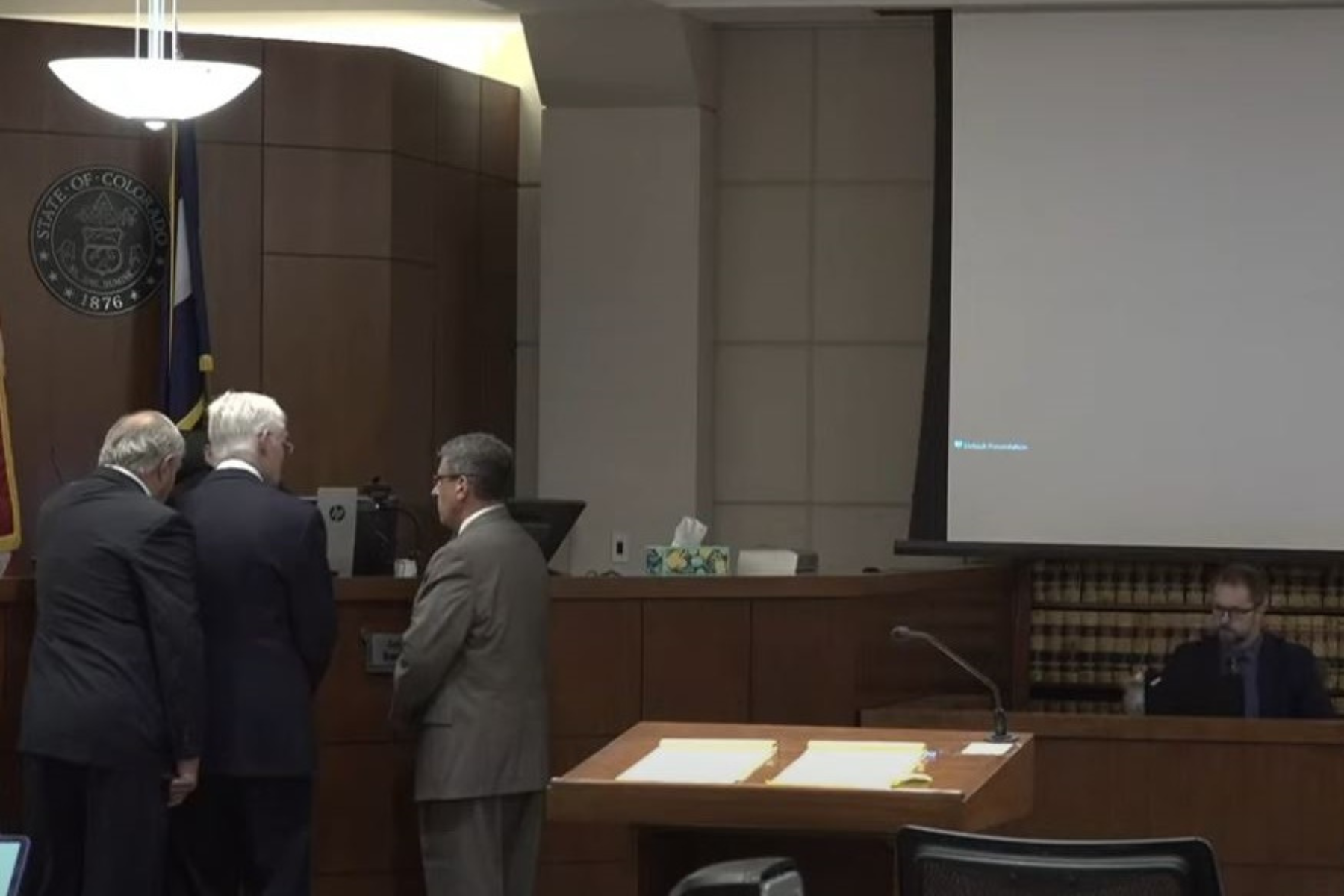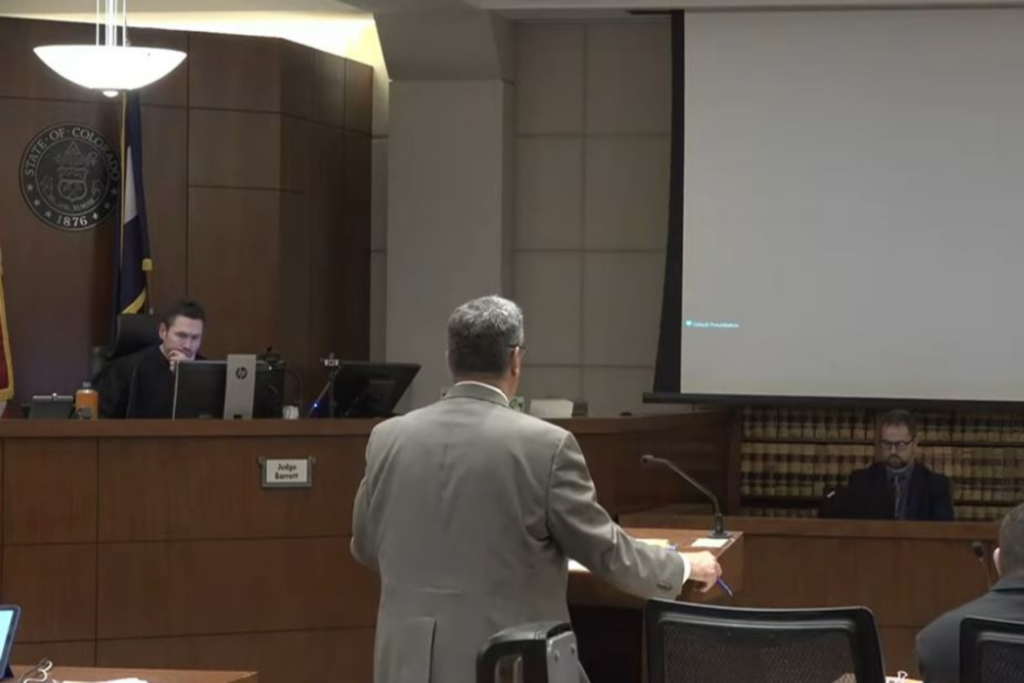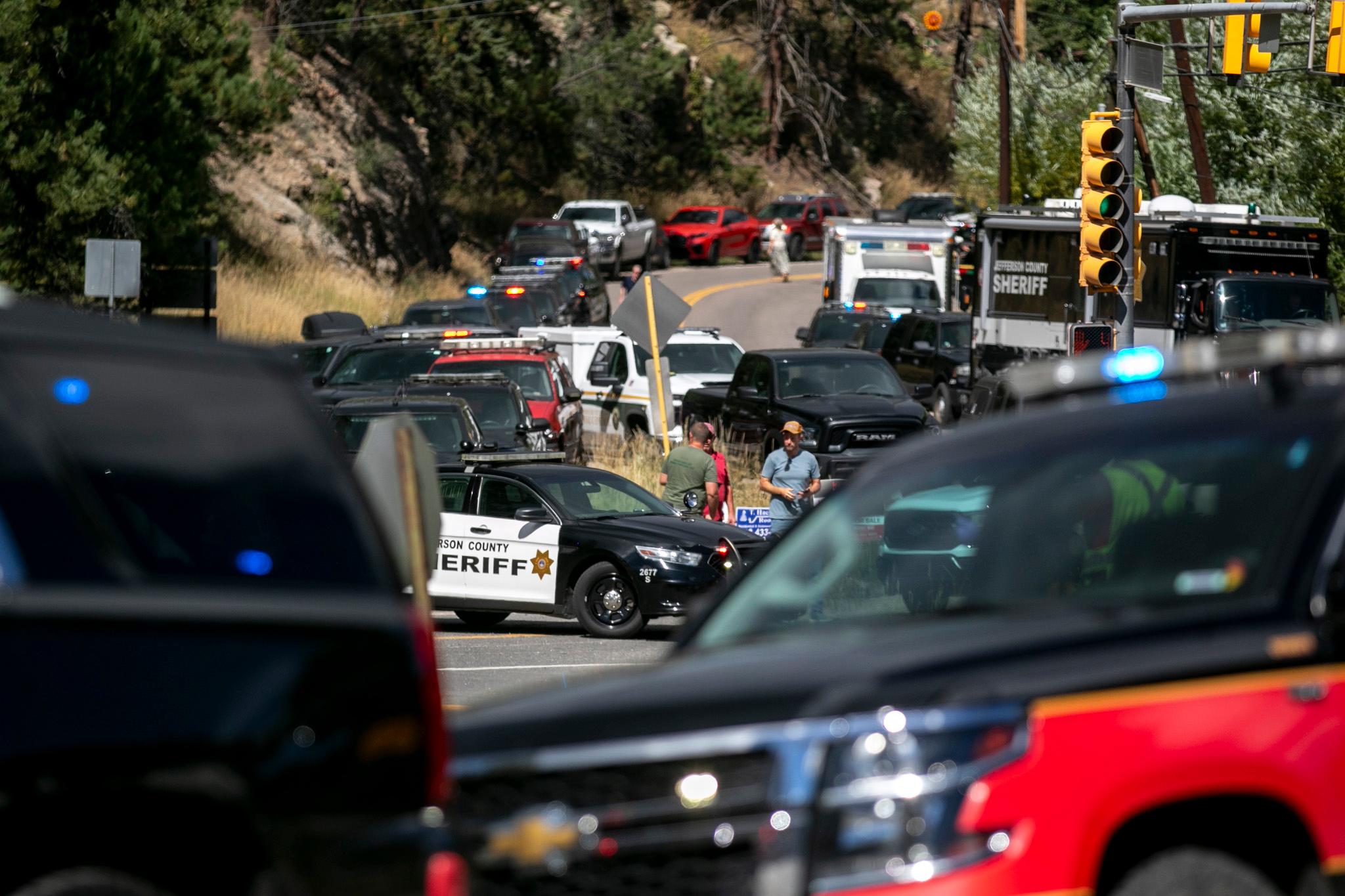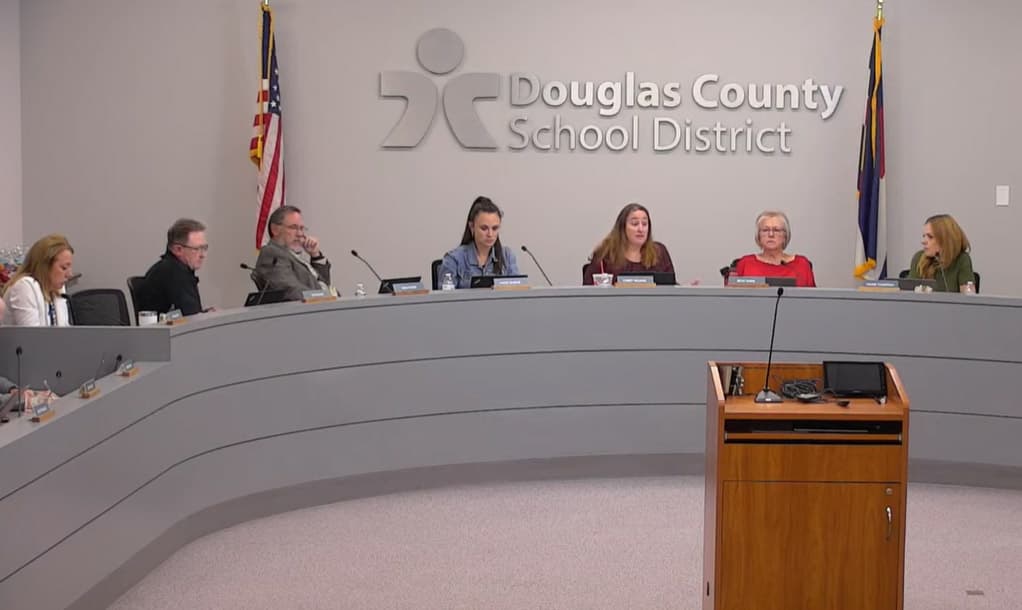
Attorneys prosecuting the case against a former Mesa County Clerk have had enough of the defense team straying into subjects and topics deemed off-limits ahead of trial.
Late Thursday evening, 21st Judicial District Dan Rubinstein asked Judge Matthew Barrett to help rein in the defense.
“I have observed Mr. (John) Case time and time again violate the court's pretrial order and continue to ask things that are prohibited,” Rubinstein said, asking that Barrett “admonish him that a contempt will be found if he continues to go into things that the court has already ordered he's not to go into.”
Former Mesa County Clerk Tina Peters is charged with 10 counts related to helping an unauthorized person access county voting equipment. The trial has been slow-moving, in large part due to lengthy arguments about the relevance and admissibility of evidence that must be made without the jury in the courtroom.
At several points throughout the trial, the defense has drifted toward talk of Dominion Voting Systems conspiracies, asking questions about where the machines were manufactured, whether they have internet connectivity and more. They’ve also tried to probe the results of a 2021 municipal election in Grand Junction, which Peters has said first made her question her equipment. These topics were deemed off-limits by the judge before the trial began and have drawn regular and consistent objections from prosecutors.
Before the jury was brought in Friday morning, Rubinstein again brought up the matter and proposed an alternate approach that would still aim to keep the case on track.
“The contempt is really more of a punitive thing for defense counsel for violating the court's orders. But as your honor referenced yesterday, if the prosecution were doing this, it would've resulted in a mistrial days ago,” Rubinstein said.
Rubinstein said the court could consider giving a specific notice to the jury regarding relevance.
“We are asking for an instruction that explains to the jury why it's irrelevant, and we feel like we have no option at this point because they continue to probe things that the court has ruled as irrelevant… to any issue the jury will be deciding,” Rubinstein said.
Dan Hartman, a lawyer for the defense, argued that some of his questions were in response to prosecution evidence and others were accidental in the process of questioning.
“Your Honor, sometimes when questions are prepared — and I'm not making excuse — sometimes when questions are prepared, they're prepared in a series, and sometimes lawyers when they're making adjustments on the fly … I know that I (was) deliberately trying to stay away from the areas the court has foreclosed us on,” Hartman said.


Barrett held off on any new action, saying that he would see if things improved, though he said the jury instructions and contempt orders were still on the table.
“The frustrating part is I don't know if it's a strategy or what it is, but asking questions into prohibited areas by me in front of the jury over and over and over again to just elicit an objection that you must know is coming and a sustaining of that objection by me that you must know is coming is troubling,” Barrett said, “and I'm trying to figure out what to do.”
Barrett has moved in recent days to work later into the evenings with attorneys in order to make up time. The trial was scheduled to conclude on Aug. 12.
“We are losing a lot of time through these arguments that we're having right now, these discussions,” Barrett said. “So can we get the jury in?”
CPR is covering each day of the Peters' trial. You can read our explainer of the case here, and catch up on past days here.







